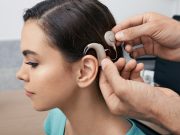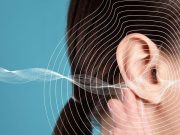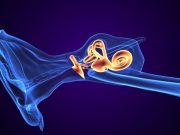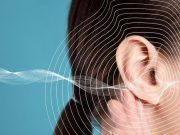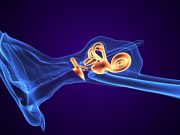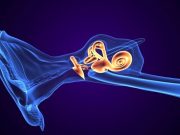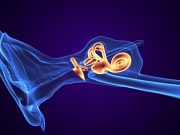Tag: Meniere’s Disease
Cochlear Implants Aid Meniere Disease Outcomes
Benefits seen across various measures
Study Compares Vestibular Endolymphatic Hydrops Grading Methods in Meniere Disease
Classification method outlined by Bernaerts et al outperformed other methods in terms of diagnostic efficiency
Multifrequency Tympanometry Could Aid Diagnosis of Meniere Disease
Findings specifically for G width at 2 kHz
Radiomics Nomograms Can Predict Cochlear, Vestibular EH in Meniere Disease
Radiomics nomograms exhibit robust performance for differentiating between EH-positive and EH-negative statuses
Morphology of Vestibular Aqueduct Linked to Meniere Disease
Correlations seen for VA patency and length with the degree of endolymphatic hydrops in cochlear, vestibule
Absent, Enlarged, Confluent Saccules Best for Identifying Meniere Disease
Presence of saccule abnormality or asymmetric perilymphatic enhancement and incomplete vestibular aqueduct visualization optimizes MRI diagnosis
Meniere Disease Is a Heterogeneous Condition
Subgroups can be identified by specific clinical features, with patients diagnosed with ear infections more likely to be in cluster 1
Endolymphatic Hydrops Asymmetry Can Distinguish Meniere Patients From Controls
Endolymphatic hydrops asymmetries can better distinguish patients from controls than endolymphatic hydrops percentage
Many With Meniere Disease Based on ICD-10 Do Not Meet AAO-HNS Criteria
Odds of reporting migraine were higher for patients with MD, and odds of autoimmune conditions were lower
Signal Intensity Ratio of Cochlear Basal Turn Increased in Affected Ear in Meniere Disease
Positive correlations seen for signal intensity ratio in affected ear of Meniere disease with hydrops in both cochlea and vestibula


